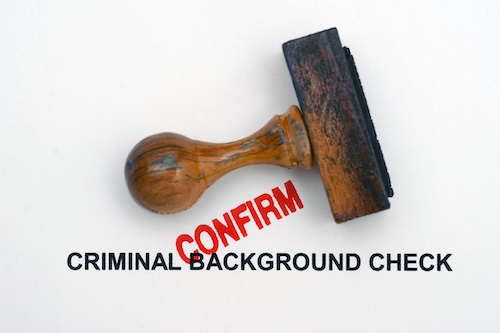Sealing Criminal Records in Texas: Understanding Your Options
Cowboy Law Group serves The Woodlands, Conroe, the Greater Houston area, and the Texas Hill Country. We offer strong criminal defense and juvenile law services. Our attorneys handle adult and juvenile cases in areas such as assault defense, drug crimes, DWI, gun charges, and murder defense. We also defend clients against federal charges, including smuggling, trafficking, and drug and gun offenses. We combine legal grit with a straightforward spirit. We act as reliable advocates and trusted counselors when you need us most.
A criminal record in Texas can affect employment, housing, and even interactions with government agencies. Two legal remedies exist to limit or remove this impact: expungement and sealing criminal records. Expungement deletes arrest records and criminal history information from public record, while sealing a criminal record hides information from background checks but keeps it available to law enforcement agencies and state agencies.
Knowing the difference between these options helps determine the best path forward, and an experienced Woodlands criminal defense attorney can guide the filing process in district court.
Understanding Criminal Records in Texas
A criminal record in Texas affects many parts of daily life and can follow a person long after the criminal case ends.
What Is a Criminal Record
A criminal record is the official record of an arrest, charge, or criminal proceeding. It includes records related to arrests, charges dismissed, deferred adjudication, or convictions. These records are kept by law enforcement agencies, state agencies, and the Texas Department of Public Safety. They appear in a DPS criminal history report and can also be found in records held by the district clerk’s office.
Who Can See Criminal Records
A criminal history report is often used by government agencies, immigration officials, and law enforcement agencies. Private entities, such as potential employers or landlords, may also access certain records through background checks. The public record may include arrest records and records pertaining to a criminal case, unless the record is later sealed or expunged.
Why Criminal Records Matter
A criminal record in Texas can limit employment opportunities, housing, and professional licensing. It may also affect public safety checks and applications with the federal government. Even if charges were dismissed, the arrest records can remain on file until a person petitions to seal a criminal record or have a criminal record expunged.
Expungement in Texas (Texas Code of Criminal Procedure, Chapter 55)
Expungement is the legal process that allows a person to remove records of a criminal case from public access under Texas law.
What Expungement Means
When a court grants expungement, arrest records, criminal history information, and other records related to a criminal proceeding are deleted. Once removed, these records no longer appear in a DPS criminal history report, background check, or other public record. Expunged records are treated as though the arrest and charges never happened.
Who Qualifies for Expungement
Eligibility depends on the outcome of the criminal case. A criminal record can be expunged if a person was acquitted, if charges were dismissed, or if a person completed a pretrial diversion program. Certain Class C misdemeanors may also qualify after deferred adjudication and successful completion of the waiting period. Felony convictions do not qualify for expungement under Texas Code of Criminal Procedure, Chapter 55.
The Filing Process for Expungement
The process begins with filing a petition at the district clerk’s office in the county where the arrest occurred. The petition must include information about the arresting agency, district court, and records pertaining to the case. The petitioner must also provide notice to law enforcement agencies, state agencies, and other government entities that hold records. After filing, the court sets a hearing date. If the judge signs the order, the district clerk’s office and other agencies listed must destroy or return the records.
Benefits of Expungement
Expungement removes arrest records and criminal history information from government agencies and private entities. It helps clear a DPS criminal history report and prevents public disclosure of records related to the arrest. This result allows a person to move forward without the burden of a criminal record.
Sealing Criminal Records in Texas (Texas Government Code § 411.071 – 411.081)
Sealing a criminal record in Texas limits public access to criminal history while keeping the records available to certain government entities.
What Sealing a Criminal Record Means
Sealing a criminal record is done through an order of nondisclosure. The record is not erased but it is hidden from background checks used by potential employers, landlords, and private entities. Law enforcement agencies, the Texas Department of Public Safety, and other state agencies may still access sealed records.
Who Qualifies for Record Sealing
Eligibility requires that a person complete deferred adjudication community supervision and meet all legal requirements. The court must find that the person has successfully completed the terms of community supervision and that no disqualifying offenses such as family violence or certain felony convictions are present. The statute sets a required waiting period before a petition can be filed, which varies depending on the type of offense.
The Filing Process for Sealing Records
The process starts with filing a petition for an order of nondisclosure at the district clerk’s office in the county where the case was heard. The petition must include records pertaining to the case and notice to the agencies listed such as the arresting agency, district court, and Texas Department of Public Safety. After filing, the court schedules a nondisclosure hearing. If the judge signs the order, the clerk’s office provides notice to government agencies and private entities that must seal the records.
Benefits of Sealing Criminal Records
Record sealing helps protect privacy by preventing public disclosure of arrest records, charges dismissed, or records related to deferred adjudication. A sealed criminal record improves employment opportunities, housing applications, and licensing prospects. While sealed records remain visible to government agencies and law enforcement, they no longer appear in public record searches or most background checks.
Comparing Expungement vs. Sealing a Criminal Record
Expungement and sealing a criminal record are different legal remedies in Texas, and the best option depends on the outcome of the criminal case.
Key Difference Between Expungement and Sealing
Expungement erases records from existence. Arrest records, criminal history information, and records pertaining to the case are destroyed or returned to the district court. Sealing criminal records hides the information from private entities and background checks but keeps the record available to law enforcement agencies, the Texas Department of Public Safety, and certain government entities.
When Expungement Applies
A criminal record can be expunged if the case ended in acquittal, dismissal, or completion of a pretrial diversion program. Some Class C misdemeanors may also qualify after deferred adjudication. Expunged records do not appear in a DPS criminal history report or other public record, and the person may legally deny the arrest or criminal proceeding.
When Sealing Applies
Sealing criminal records through an order of nondisclosure is available to people who completed deferred adjudication community supervision and meet eligibility criteria. A required waiting period may apply depending on the type of offense. Sealed records remain available to state agencies, law enforcement, and immigration officials but are hidden from potential employers and private background checks.
Practical Considerations
Expungement provides a complete removal of records, but it is only available in limited circumstances. Sealing a criminal record applies more broadly for deferred adjudication cases but does not remove the record entirely. Both processes require filing at the district clerk’s office, paying a filing fee, and providing notice to agencies listed in the petition. A criminal defense attorney can help determine eligibility and handle the filing process in district court.
Speak with a Criminal Defense Attorney at Cowboy Law Group!
If you want to seal your criminal record or learn whether expungement is possible under Texas law, our team at Cowboy Law Group is ready to help. A criminal defense lawyer can review your criminal history report, explain eligibility criteria, and guide you through the filing process at the district clerk’s office.
Contact us at 832-326-2932 for a free case consultation today!







